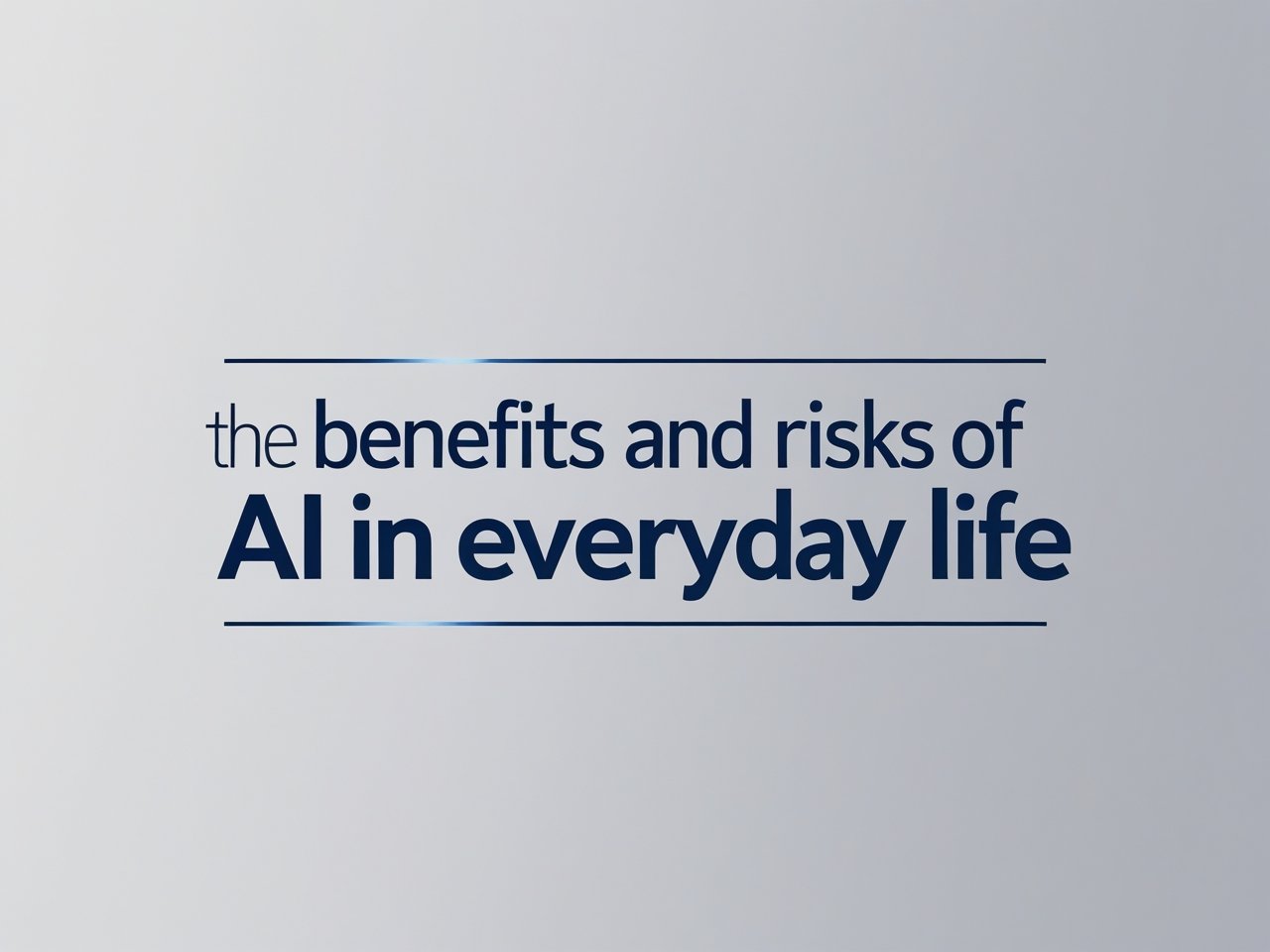AI has woven itself into the cloth of each day existence, revolutionizing the way we stay, paintings, and have interaction. From personalised tips to self reliant automobiles, AI’s presence is felt throughout severa domains. However, as with any transformative generation, it comes with both advantages and potential dangers. This article explores the benefits and risks of AI in ordinary life, along with healthcare, transportation, and personal assistants, even as highlighting both its benefits and demanding situations.
The Benefits of AI in Everyday Life
1. Healthcare Advancements
AI is reshaping healthcare by means of enhancing diagnostics, streamlining administrative procedures, and personalizing treatment plans. For instance, AI-powered gear like IBM Watson Health analyze great datasets to help medical doctors in diagnosing sicknesses with extra accuracy. Wearable gadgets, which includes Fitbit and Apple Watch, use AI algorithms to reveal health metrics, enabling customers to take proactive steps toward higher fitness.
Example: During the COVID-19 pandemic, AI was employed to song virus spread, are expecting outbreaks, and accelerate vaccine improvement.
Benefit: AI in healthcare saves lives, reduces costs, and complements affected person results via information-pushed insights.
2. Revolutionizing Transportation
AI is using innovation in transportation, making journey safer and extra green. Autonomous cars, powered by AI, promise to reduce accidents as a result of human errors. Companies like Tesla and Waymo are at the vanguard of this revolution, utilising AI for navigation, item detection, and selection-making in actual time.
Example: AI-powered traffic control systems optimize visitors waft in towns, lowering congestion and emissions.
Benefit: AI in transportation improves safety, minimizes travel time, and contributes to environmental sustainability.
3. Enhanced Personal Assistants
AI-driven non-public assistants, inclusive of Siri, Alexa, and Google Assistant, have grow to be quintessential in contemporary families. These digital assistants simplify day by day responsibilities, from putting reminders to controlling clever domestic devices, making lifestyles greater convenient.
Example: AI-powered chatbots offer immediately customer support, resolving troubles effectively without human intervention.
Benefit: AI personal assistants shop time and beautify productiveness by means of automating ordinary tasks.
The Risks of AI in Everyday Life
1. Privacy Concerns
AI systems regularly require get right of entry to to personal statistics to function effectively, elevating large privacy troubles. From smart devices to social media systems, the statistics collected may be misused or hacked, main to ability identity robbery or unauthorized surveillance.
Example: In 2018, Facebook’s Cambridge Analytica scandal uncovered how AI-pushed information analytics might be exploited for political manipulation.
Risk: Mismanagement of personal facts erodes accept as true with and compromises person privateness.
2. Job Displacement
Automation powered through AI threatens to replace jobs in sectors along with production, retail, and customer service. While new roles may also emerge, the transition ought to leave many workers suffering to adapt.
Example: AI-pushed kiosks in fast food restaurants lessen the need for cashiers, impacting employment inside the industry.
Risk: AI-prompted task losses can exacerbate economic inequality and social unrest.
3. Bias and Discrimination
AI systems can inadvertently perpetuate biases found in their schooling statistics, main to discriminatory results. For example, facial popularity technology has been criticized for inaccuracies whilst identifying people from numerous racial backgrounds.
Example: A 2019 take a look at found out that positive AI algorithms used in hiring procedures desired male applicants over similarly qualified lady applicants.
Risk: Biased AI undermines fairness and perpetuates societal inequalities.
Balancing Benefits and Risks
To maximize the advantages of AI at the same time as mitigating its dangers, individuals and organizations ought to adopt responsible AI practices:
Regulation and Oversight: Governments have to set up legal guidelines and recommendations to make sure AI is advanced and used ethically.
Transparency: Companies have to disclose how their AI structures operate and deal with consumer information.
Education and Reskilling: Workers impacted through AI-pushed automation ought to have get entry to to training applications for brand spanking new process opportunities.
Diverse Datasets: Ensuring AI is trained on numerous and representative records can lessen bias and enhance accuracy.
AI’s integration into everyday lifestyles gives sizeable capability to improve convenience, performance, and best of existence. From revolutionizing healthcare to enhancing private productiveness, the advantages are undeniable. However, the The advantages and risks of AI in regular existence can’t be omitted. By know-how and addressing these challenges, we are able to harness AI’s power responsibly, making sure a destiny in which generation serves humanity instead of undermines it.







